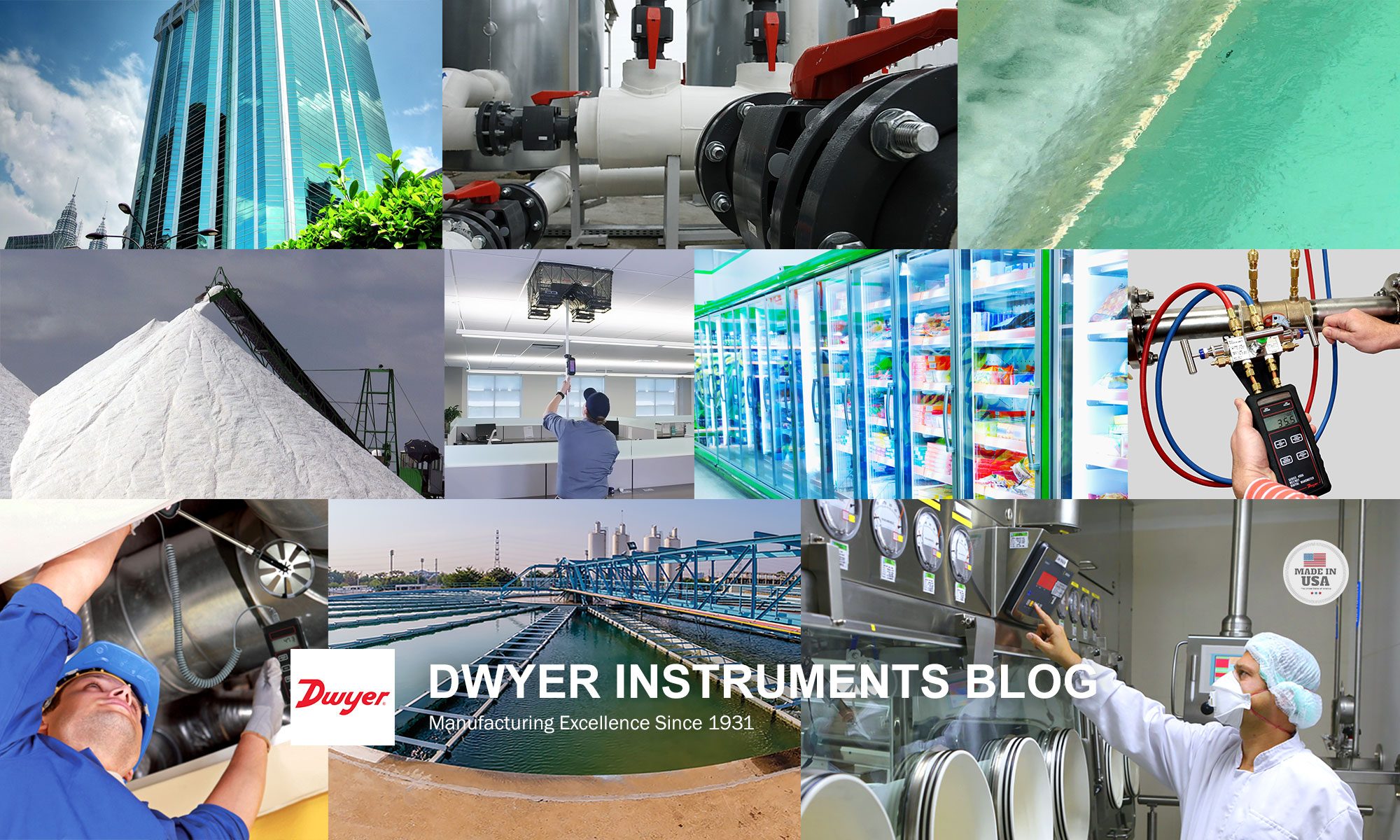Dwyer is committed to aiding in the fight against COVID-19. We have several products that are used in hospitals and the production of ventilators. Ventilators are used to aid COVID-19 patients who have low oxygen levels, support their breathing, and bring oxygen levels to a safe range.
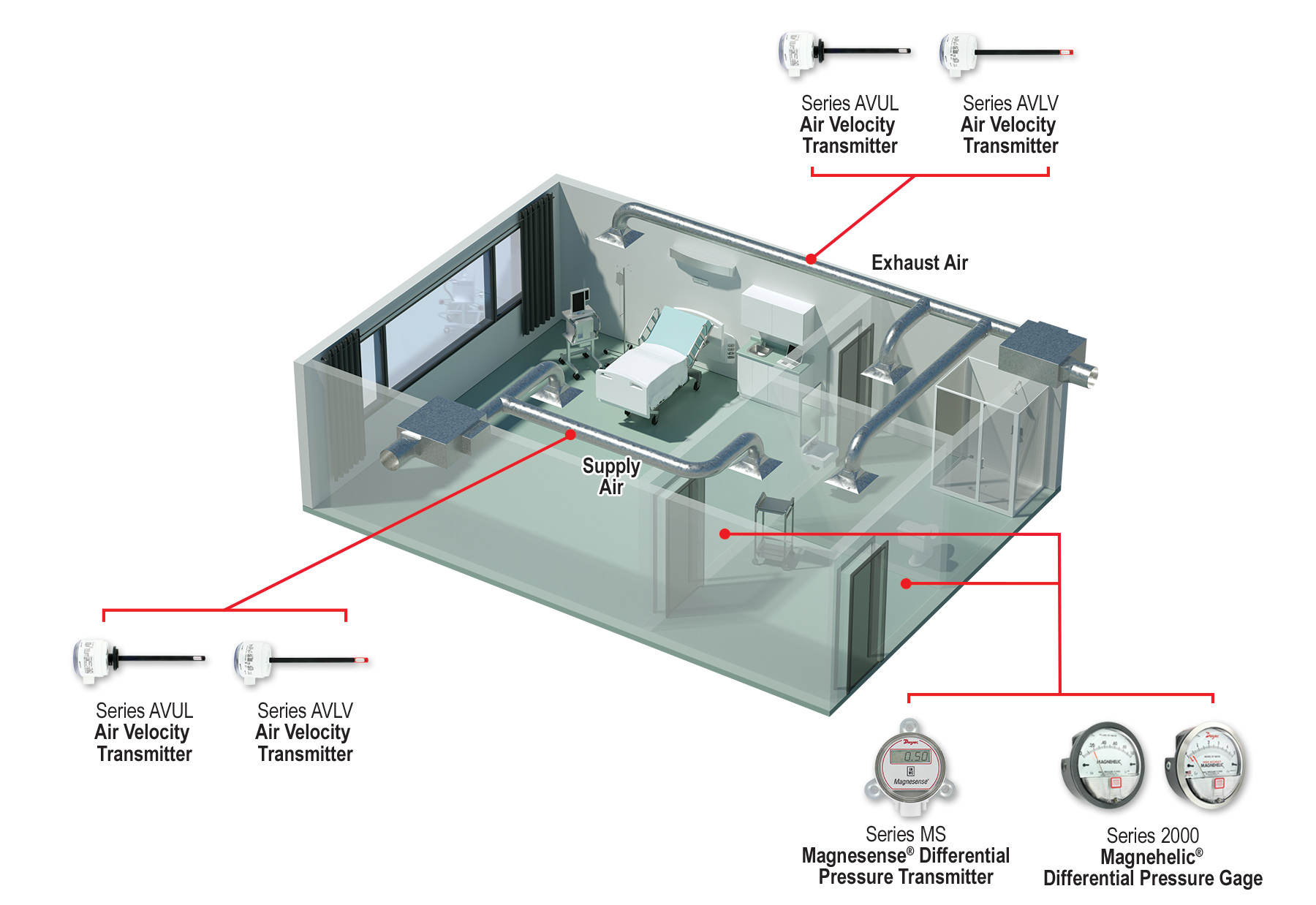
In addition, isolation rooms need to remain at specific pressures and air cycles, so as to not risk exposure of airborne contagions to other patients or healthcare professionals during treatment. Today we’ll be discussing some of the products that Dwyer manufactures that are used in these applications.
Ventilators
Oxygen Monitoring
As more ventilators are in demand, the ability to produce them is essential. Several of our products are able to be safely used in the construction of a ventilator. In this case, I’d like to focus on our flowmeter offerings.
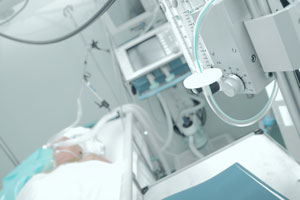
The Series RM Rate-Master® Flowmeters or Series VF Visi-Float® Acrylic Flowmeters can be used to measure air flow or oxygen through a system. There are many different ranges and sizes available, which makes them beneficial for low flow applications. With a given series, Rate-Master® flowmeter bodies can be instantly interchanged, allowing the piping to remain undisturbed for easy cleaning. The RM and the VF also have a special cleaning option that can be selected in the product configurator and is ideal for use with medical equipment. This option ensures maximum cleanliness, and changes out any components that would interfere with an oxygen application (like a ventilator).
The Series RM and VF are both low cost and easy to manufacture quickly. Both flowmeters also have multiple scale sizes available. These flowmeters are a great fit for critical applications in the healthcare industry.
Isolation Rooms
Pressure Monitoring
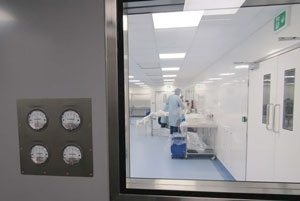
The Dwyer Series 2000 Magnehelic® Differential Pressure Gage is currently being used all over the world in hospital isolation rooms. These gages have no power requirements because they are strictly mechanical, so they’re an ideal choice for temporary applications and permanent installations alike. Due to the many ranges we offer for this series, as well as their ability to sense low pressure, these gages can be used for a variety of applications. Similar to the flowmeters discussed earlier, the Magnehelic® gage has a special cleaning option to make it even more suitable for applications that require extreme cleanliness. The special cleaning takes extra care of all wetted and internal parts that could contaminate a clean environment. This option makes the unit suitable for use in isolation rooms (or ventilator applications when being used with oxygen).
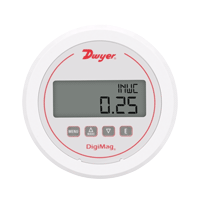
Our Series DM-1000 DigiMag® Digital Differential Pressure and Flow Gage is the digital version of the Magnehelic® gage and can run on battery power. If battery power is not desired, the DM-1000 also works with a 9-24 VDC input signal. These gages are popular in hospitals, and have a high resolution, easy-to-read LCD display.
Other digital units such as our Series DH3 Digihelic® Differential Pressure Controller or Series MS2 Magnesense® II Differential Pressure Transmitter can be used to tie into these applications and connect to a building automation system via 4-20 mA output signals. This can be a critical advantage for hospitals trying to monitor multiple rooms during this pandemic.
Air Flow Monitoring
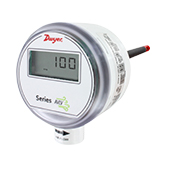
Just as differential pressure monitoring is important to the safety of individuals in and around an isolation room, so is the monitoring of the air flow. CDC and ASHRAE guidelines state that the total volume of air in an isolation room needs to change over a minimum of 6 to 12 times per hour depending on when the hospital was constructed. Dwyer’s Series AVLV and AVUL Air Velocity Transmitters help to meet these standards. These units provide a linear velocity output signal that can be paired with a building management system. In particular, the lower ranges of the AVLV high accuracy units are ideal for applications in quality intensive environments.
Air Balancing
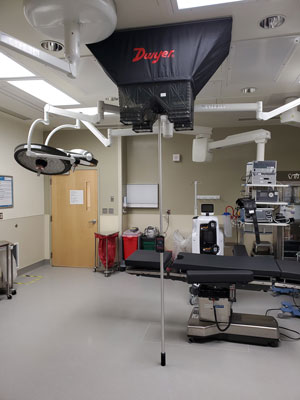
Using an air flow hood to balance the air flow within hospitals is also important to making sure you have an appropriate number of air changes per hour. In addition, balancing with an air hood allows you to ensure rooms are properly pressurized. This helps to prevent airborne contaminants from lingering in the room or being spread throughout the hospital. The SMART Air Hood® Balancing Instrument, Series SAH, is easily maneuvered around obstacles like medical equipment, shelves, and cubicles. Dwyer offers skirt adapter hoods which can accommodate for the longer and larger diffusers that can be found in medical applications.
These products are just a few examples of Dwyer instrumentation being used in the healthcare industry. To meet the increased demands of these units, our manufacturing plants have shifted production to focus on units that are critical for fighting COVID-19.
If you’d like to learn more about how our products are used in isolation rooms, please visit our website.
